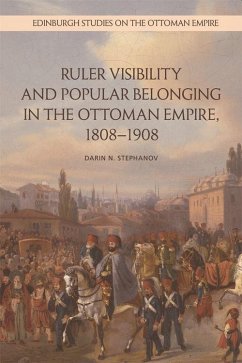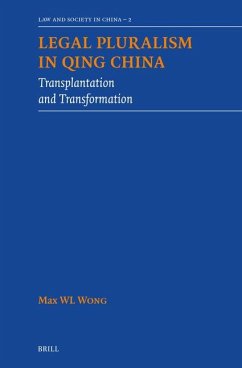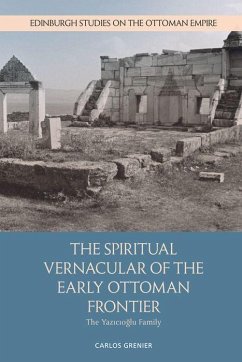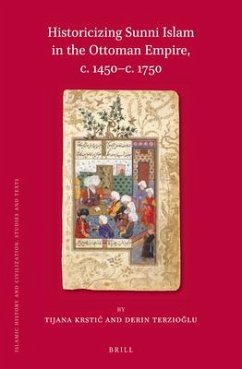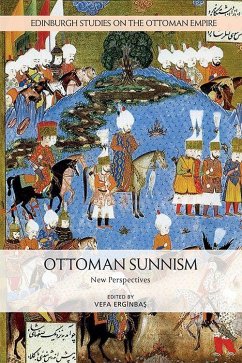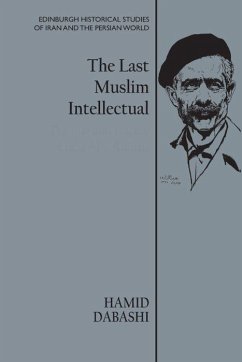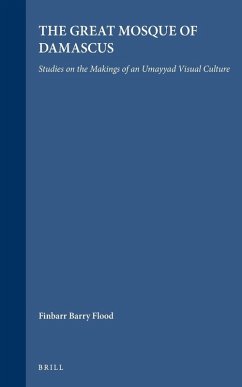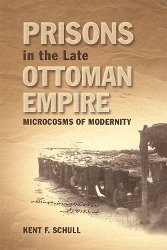
Prisons in the Late Ottoman Empire
Microcosms of Modernity
Versandkostenfrei!
Versandfertig in über 4 Wochen
108,99 €
inkl. MwSt.
Weitere Ausgaben:

PAYBACK Punkte
54 °P sammeln!
'A well-documented contribution to the budding historiography of Middle Eastern prisons but also to the study of late Ottoman reform. Schull cogently argues that Ottoman prison reform as well as Ottoman reform in general were not just imitations of Western examples, but rather distinctly Ottoman responses to internal crises and Western encroachments.' Rudolph Peters, Emeritus Professor of Islamic Law, University of Amsterdam 'In this theoretically and empirically rich account Kent Schull shows how prisons, prisoners, and prison reform fit in the transformation of the Ottoman state in the 19th ...
'A well-documented contribution to the budding historiography of Middle Eastern prisons but also to the study of late Ottoman reform. Schull cogently argues that Ottoman prison reform as well as Ottoman reform in general were not just imitations of Western examples, but rather distinctly Ottoman responses to internal crises and Western encroachments.' Rudolph Peters, Emeritus Professor of Islamic Law, University of Amsterdam 'In this theoretically and empirically rich account Kent Schull shows how prisons, prisoners, and prison reform fit in the transformation of the Ottoman state in the 19th century. By shedding light on a much neglected aspect of Ottoman state practice, this book significantly improves our understanding of one of the most crucial periods in Ottoman history.' Reşat Kasaba, Stanley D. Golub Chair, Professor of International Studies, University of Washington. Challenges western images of Ottoman prisons as sites of Oriental brutality Contrary to the stereotypical images of torture, narcotics and brutal sexual behaviour traditionally associated with Ottoman (or 'Turkish') prisons, Kent F. Schull argues that these places were sites of immense reform and contestation during the 19th century. He shows that they were key components for Ottoman nation-state construction and acted as 'microcosms of modernity' for broader imperial transformation. It was within the walls of these prisons that many of the pressing questions of Ottoman modernity were worked out, such as administrative centralisation, the rationalisation of Islamic criminal law and punishment, issues of gender and childhood, prisoner rehabilitation, bureaucratic professionalisation, identity and social engineering. Juxtaposing state-mandated reform with the reality of prison life, the author investigates how these reforms affected the lives of local prison officials and inmates, and shows how these individuals actively conformed, contested and manipulated new penal policies and practices for their own benefit. Key Features - Views the prison as a microcosm of imperial transformation during this critical period in Middle East history - Heavily critiques Michel Foucault's approach to punishment, state power and society by applying it to a non-Western context - Presents penal institutions in this period as complex social institutions that act as windows to broader cultural, ideological and social issues - Covers key issues including juvenile delinquents, corruption and prisoner abuse, female prisoners and gendered incarceration, and Islamic criminal law reform Kent F. Schull is Assistant Professor in the Department of History at Binghamton University. Cover image: A section of the inmates' chicken-coopesque hovels located in the southern part of Karesi's Central Prison (c) Başbakanlık Osmanlı Arşivi, DHMBHPSM 10/14 Cover design: [EUP logo] www.euppublishing.com




